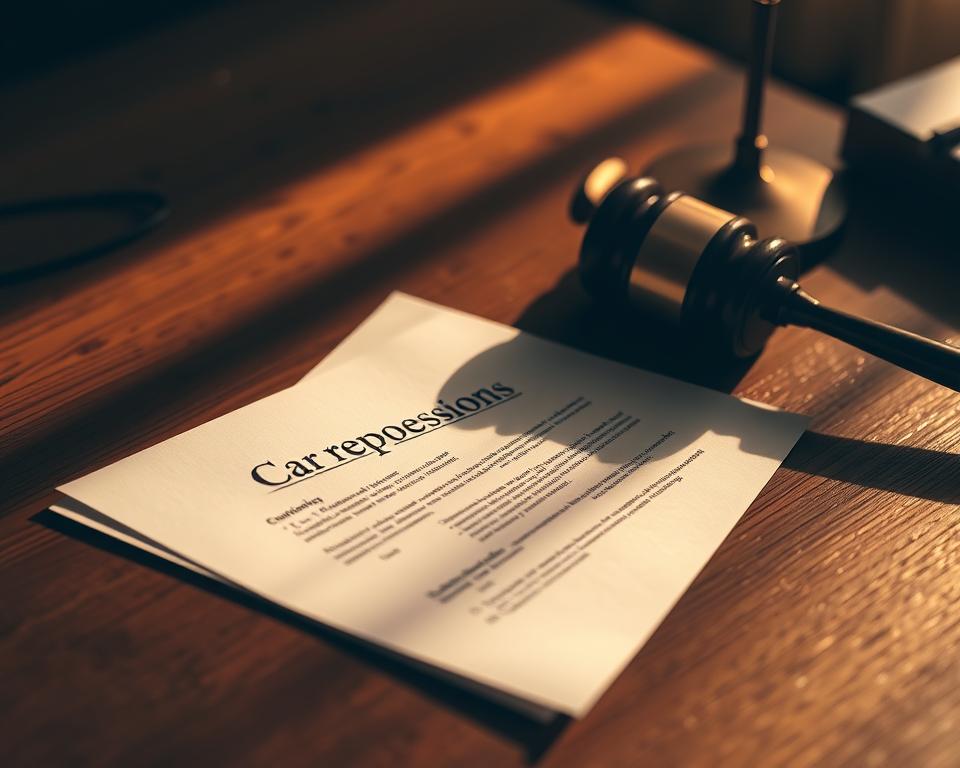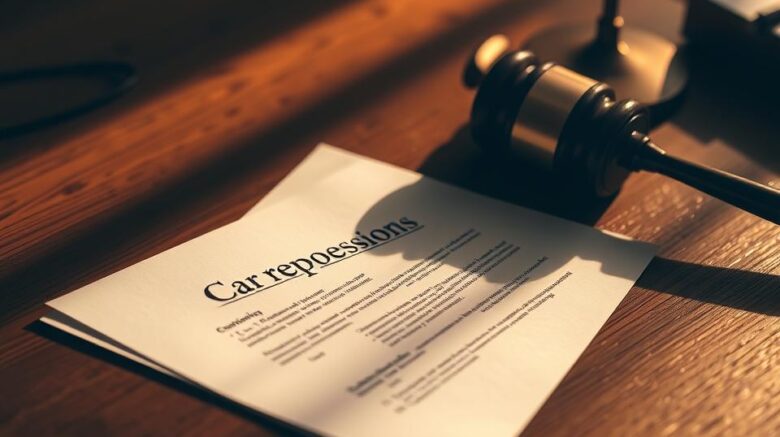Understanding car repossession Regulations within California
Have you ever questioned about the process in which a financier takes back a car within California? Working through California repo can be complicated, particularly during economic strain. Once financings go unpaid, lenders can swiftly initiate repossession. However, numerous aren’t aware of the particular entitlements and obligations outlined in the Golden State’s repossession statutes.
Upon a default on a loan, California enables financiers to take cars immediately. However, this does not make borrowers helpless. Grasping these regulations is vital for debtors aiming to safeguard their rights. In this piece, we explore major facets of California’s civil legislation and Commercial Code, outlining the process leading to repossession and borrower rights. Awareness plays an essential role, especially with respect to your financial well-being.
Summary of car repossession in California
Car repossession represents a significant issue for many within California facing economic challenges. It’s vital to grasp its core principles for successfully managing possible obstacles. It happens when a creditor takes back a automobile because of a noncompliance in the loan terms. These actions may severely impede one’s employment opportunities or access necessary services.
What is car repossession?
Repossession takes place as creditors take back automobiles from debtors who breach their obligations. Within California, missing even one payment can trigger it. A grace period is not provided, prompting debtors to be watchful about their commitments.
Frequent Causes for Repossession
Being aware of what leads to repossession is crucial to avoiding it. Frequent factors consist of:
- Failing to make scheduled payments
- Failing to maintain mandatory coverage requirements
- Breaching specific clauses of the financing contract
To evade repossession, vigilant fiscal oversight and lender communication are imperative. Such steps serve to help borrowers keep their vehicles and the advantages they grant.
Understanding Repossession Laws within California
California’s rules on repossession shield the concerns of both financiers and borrowers. They provide a just system in the course of the repossession of vehicles. Understanding the crucial legal aspects of repossession aids borrowers. It clarifies their rights clearly.

Principal Legal Clauses
Such regulations include essential clauses. Creditors need to comply with the Automobile Sales Finance Act. It spells out the notice obligations applicable to consumers. A mandatory Notice of Seizure must be provided after repossession. It provides information about the title of the vehicle and the repossession agency involved.
Furthermore, all repossession agents are required to be licensed. It permits consumers to verify the agent’s qualifications. Such mandates substantially strengthen protection for consumers as stipulated by the law.
Entitlements of Borrowers
Borrowers are granted particular privileges that strengthen their safeguard during repossession. They have the right to receive sufficient advance notice. Understanding the process steps is their right. It is equally important to note that they must understand threats or the use of force by repossession agents is prohibited. Statutory rules disallow any conduct that disturbs the peace during the process.
These precautions affirm that people preserve their honor and security. This is vital in what may be a tumultuous time.
The Car Repossession Process within California
Repossession in California commences upon missed payments or insurance coverage failures. Being aware of the sequence assists consumers in managing this tough situation – Law Offices of Brandon A. Block. Subsequent sections detail the steps and the events following repossession.
Phases Preceding Repossession
When a consumer fails to meet loan obligations, the lender takes note. No warning is given before repossession, as California doesn’t require it. Here are the steps:
- Default is triggered by skipped payments.
- Though not mandatory, the creditor might try contacting the borrower.
- Following this, representatives move to repossess the car without warning.
Subsequent Steps After Repossession
Debtors receive documented notification within 48 hours post-repossession. It covers vital information:
- The lender and repossession agency’s contact details
- An inventory of personal items contained in the car
There’s a 60-day window to retrieve personal items. Otherwise, the agency may eliminate them. Borrowers have legal avenues to challenge a repossession, depending on their situation.
How to Fight a Repossession within the Golden State
Facing car repossession in California can be intimidating. However, knowing your alternatives greatly strengthens your position. With early action, beneficial resolutions may be secured. It’s critical to understand your legal rights in these situations.
Comprehending Available Legal Strategies
In order to fight repossession in California, identifying multiple legal approaches is essential. Consumers can explore:
- Bargaining with creditors for an acceptable installment plan
- Modifying payment terms to better suit their economic condition
- Obtaining attorney support when repossession appears unlawful
Early communication with lenders enhances the likelihood of a mutually acceptable arrangement. Make sure all agreements are documented to avoid future misunderstandings.
Communicating with Financiers
Bargaining with creditors is critical for addressing repossession issues. In cases where the repossession has occurred, immediate communication with lenders may assist in recovering the car. Approaches to negotiation feature:
- Seeking a brief deferment of installments
- Considering a voluntary vehicle surrender to reduce financial strain
- Examining other fiscal solutions for outstanding obligations
Ongoing communication with financiers nurtures trust, thus paving the way for improved settlements. This trust can lead to better agreements, helping borrowers manage their financial issues more effectively.
Steps to Prevent Repossession
To keep your car and steer clear of financing issues, knowing preventive measures is key. Within the Golden State, folks have several legal tactics to dodge repossession. They include maintaining transparent communication with creditors and making sure your insurance is up to snuff.
Sustaining Adequate Insurance Coverage
Holding onto your insurance is pivotal in warding off repossession troubles. Comprehensive auto insurance does more than cover accidents; it meets lender demands, too. A lapse in insurance coverage constitutes a violation of your financing contract, thereby risking repossession. Make it a habit to check and renew your policy to stay in line and worry-free.
Dialogue with Financiers
Conversations with creditors are essential for avoiding the loss of your car. Discussing your financial challenges may reveal beneficial alternatives. Creditors could modify your repayment plan or provide temporary relief in times of financial strain. Initiating early discussions establishes mutual trust and safeguards against abrupt repossession.
Final Thoughts
Understanding the laws governing car repossession in the Golden State is critical for consumers wishing to protect their interests and properties. When faced with the possibility of vehicle recovery, the process can unfold swiftly. Such rapidity frequently affords little opportunity for an adequate response. Familiarity with these regulations empowers consumers to take decisive measures.
This guide sheds light on the key elements of car repossession laws in California. It ensures that individuals understand their obligations and rights regarding repossession. Knowing your legal options can help navigate through the potential complexities of repossession. This knowledge streamlines discussions with lenders and the search for beneficial resolutions.
Through informed actions and ongoing dialogue with creditors, consumers can mitigate the hazards associated with repossession. Ultimately, awareness of your rights under the Golden State’s repossession statutes is of paramount importance. It contributes to preserving monetary stability and ensuring peace of mind in turbulent moments.
Common Inquiries
How does a missed car loan payment affect me in California?
Failing to make a payment in California can rapidly trigger car repossession. Creditors might instantaneously initiate repossession as there is no obligatory grace period.
What legal entitlements do I possess in repossession?
After repossession, you’ll receive a Notice of Seizure. It details legal ownership and the repossession agency’s info. Repossession agents are required to be licensed. It is within your rights to request proof of their qualifications.
How do I stop car repossession in California?
Prevent repossession by making prompt loan and insurance payments. Regularly renew your insurance. Engage in ongoing dialogue with your creditor during monetary difficulties to explore feasible payment plans.
What steps can I take after a car repossession?
Should your car be repossessed, remain in contact with your creditor to explore options such as contract reinstatement. Consider legal advice if you suspect your rights were disregarded.
Can I legally challenge repossession in California?
Indeed, you can engage in direct negotiations with lenders to modify repayment conditions. Additionally, you can take legal action if repossession seems improper or violates state statutes.
What typically causes car repossession?
Failing to pay loans, lapses in insurance, and violations of financing agreements are common causes of repossession. Understanding these causes is essential for avoidance.
What is the timeframe for reclaiming a car post-repossession?
You have a 60-day window to reclaim your car post-repossession. Past this timeframe, the repossession agency is allowed to sell your vehicle and remove any personal belongings inside.
Are creditors allowed to take back my car without warning?
Yes, California law permits vehicle repossession by agents without advance warning under specific legal situations.
What steps can I take if car payment issues arise?
If you’re facing payment difficulties, immediately inform your lender. Explore options like deferments or renegotiating your loan terms to forestall repossession.
